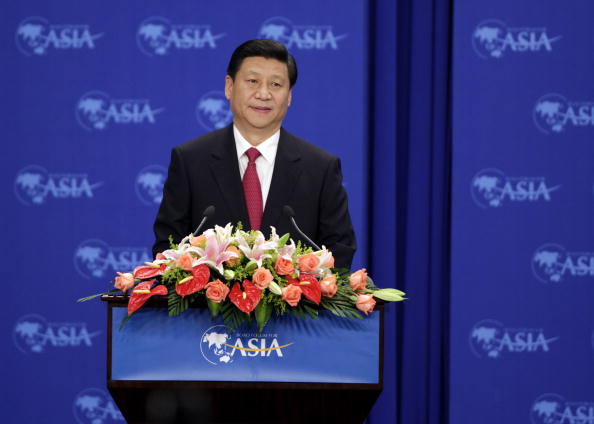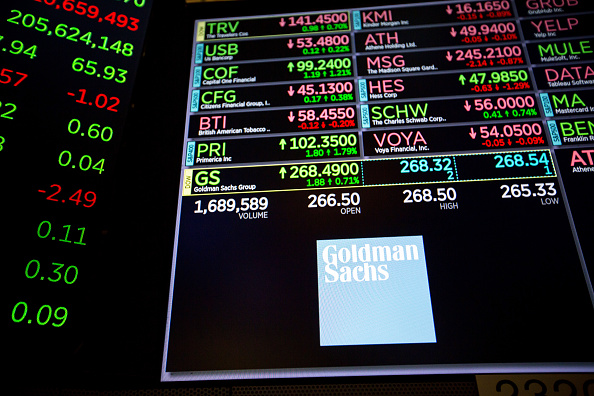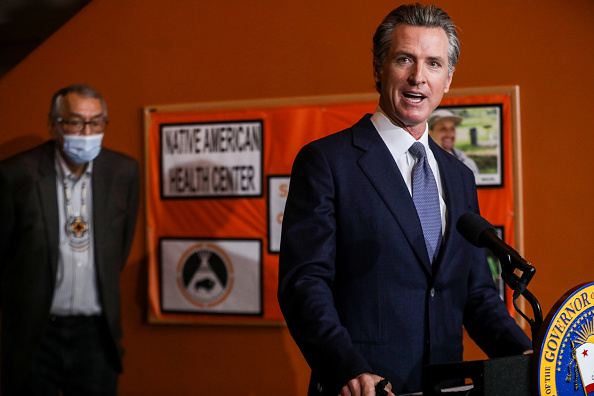
 Tipping Point
Tipping PointU.S. Defense Secretary Lloyd Austin spoke by phone with his Chinese counterpart Wednesday, according to the Pentagon, marking the first such contact between the two defense chiefs since President Joe Biden took office. The conversation was a follow-up to the recent call between Biden and Chinese President Xi Jinping.
"Secretary Austin and General Wei discussed U.S.-PRC defense relations, regional security issues and Russia's unprovoked invasion of Ukraine," the Pentagon statement said.
During the call, Secretary Austin expressed concerns about possible Chinese military assistance to Russia, but Wei responded by telling the U.S. to "refrain from using the Ukraine issue to smear and sow evidence against China, or threaten and put pressure on China," according to the Chinese Defense Ministry.
Former U.S. Ambassador to China Max Baucus meanwhile warned that U.S.-China relations are at a "tipping point"and on the brink of a technological and cultural cold war. He cited the ongoing U.S. sanctions and rising Chinese nationalism as the culprits. President Xi Jinping added to this assertion when he spoke against the United States' "cold war mentality" and hegemony in a call for global cooperation, during a televised address to an international forum in the southern island province of Hainan. Saying that "hegemonism and power politics will only breach global peace," Xi emphasized the resilience of China's economy, saying the country "offers powerful momentum" for pandemic recovery.
While he stopped short of naming Russia or Ukraine, Xi signaled that China is likely to continue its refusal to call the war in Ukraine an invasion. Xi reaffirmed China's commitment to "respecting the sovereignty and territorial integrity of all countries" and non-interference in their internal affairs.
"We stay committed to peacefully resolving differences and disputes between countries through dialogue and consultation, support all efforts conducive to the peaceful settlement of crises, reject double standards, and oppose the wanton use of unilateral sanctions and long-arm jurisdiction," Xi said.
Read more in "The Ukraine War's Global Effects: A Preliminary Assessment," by Richard Weitz, a Senior Fellow at the Hudson Institute.
 Rocky Roads
Rocky RoadsChina's first-quarter GDP growth and industrial output both beat expectations, however the lockdowns of 400 million people and the disruption of supply chains are providing reason for caution. Economists are already reducing their forecasts for this year, and are warning that the Chinese Covid Zero policy is likely to drag the economy.
As offshore investors sold a net 113 billion renminbi ($17.6 billion) worth of Chinese onshore bonds last month, the International Monetary Fund downgraded China's growth forecasts to 4.4%, marking the second time this year the Fund has signaled concern for China's economy. The sell-off signals that China's debt has become less appealing for foreign investors to hold while its bonds lose their yield advantage over US bonds. The IMF Managing Director Kristaliina. Georgieva emphasized the importance of China's actions in aiding a global recovery and preventing a prolonged economic slowdown.
Chinese retail sales contracted by an unexpected 3.5%, the jobless rate rose to the highest since the early days of the pandemic in 2020, and home sales plunged 29% by value.
In the meantime, the U.S. 10-year Treasury yield rose to its highest point in three-years, and erased its gap with its Chinese counterpart, reflecting diverging monetary policy between the two countries.
 Climate Bargains
Climate BargainsAs tensions between the United States and China continue, climate cooperation between the two nations appears to be waning, according to Washington's chief climate envoy, John Kerry, who said on Wednesday that bilateral frictions threaten to leave the world in "serious trouble." Kerry said he believed Xie Zhenhua, China's top climate diplomat, was working hard to increase China's climate action, but expressed concern that the issue could become a "bargaining chip" in the bilateral relationship.
Kerry encouraged the U.S. and China to separate climate matters from other issues, stressing that both countries – along with the rest of the world – stood to suffer the consequences of rapidly melting ice caps.
While Washington is struggling in its engagement with Beijing, California is taking strides to further their long-standing collaboration with China on climate issues. Earlier this week, CA Governor Gavin Newsom renewed a Memorandum of Understanding to advance ongoing cooperation on initiatives to protect the environment, reduce carbon emissions and air pollution, and promote clean energy development.
"Today's MOU deepens California's strong climate and clean energy ties with China, bolstering our efforts to expand clean transportation, achieve carbon neutrality, and accelerate nature-based climate solutions," said Governor Newsom. "We'll continue to foster meaningful collaboration with partners around the globe as we work to build a healthier, fossil fuel free future."
Read more in "Making Sense of the Buzz: What Does "U.S.-China Climate Cooperation" Actually Mean?," by Matt Geraci, a Research Associate for the Institute for China-America Studies and a Manager at the ICAS Maritime Affairs Program.
Prepared by China-US Focus editorial teams in Hong Kong and New York, this weekly newsletter offers you snap shots of latest trends and developments emerging from China every week, while adding a dose of historical perspective.
- 2022-04-15 “Persistence is Victory”
- 2022-04-08 No Divorce
- 2022-04-01 Auditing Accountability
- 2022-03-25 Playing Policy
- 2022-03-18 One Hand Cannot Clap
- 2022-03-11 Political Forecast
- 2022-03-04 Competitive Advantage
- 2022-02-25 A Sovereign Tightrope
- 2022-02-18 Strategic Disengagement
- 2022-02-11 In the Thick of It
- 2022-02-04 Year of the Tiger
- 2022-01-28 Zero-Sum
- 2022-01-21 An Uncertain Future
- 2022-01-14 Digital Advances
- 2022-01-07 The Dawn of a New Political Year
- 2021-12-17 Clamp Down
- 2021-12-10 Debating Democracy
- 2021-12-03 Managing Competition
